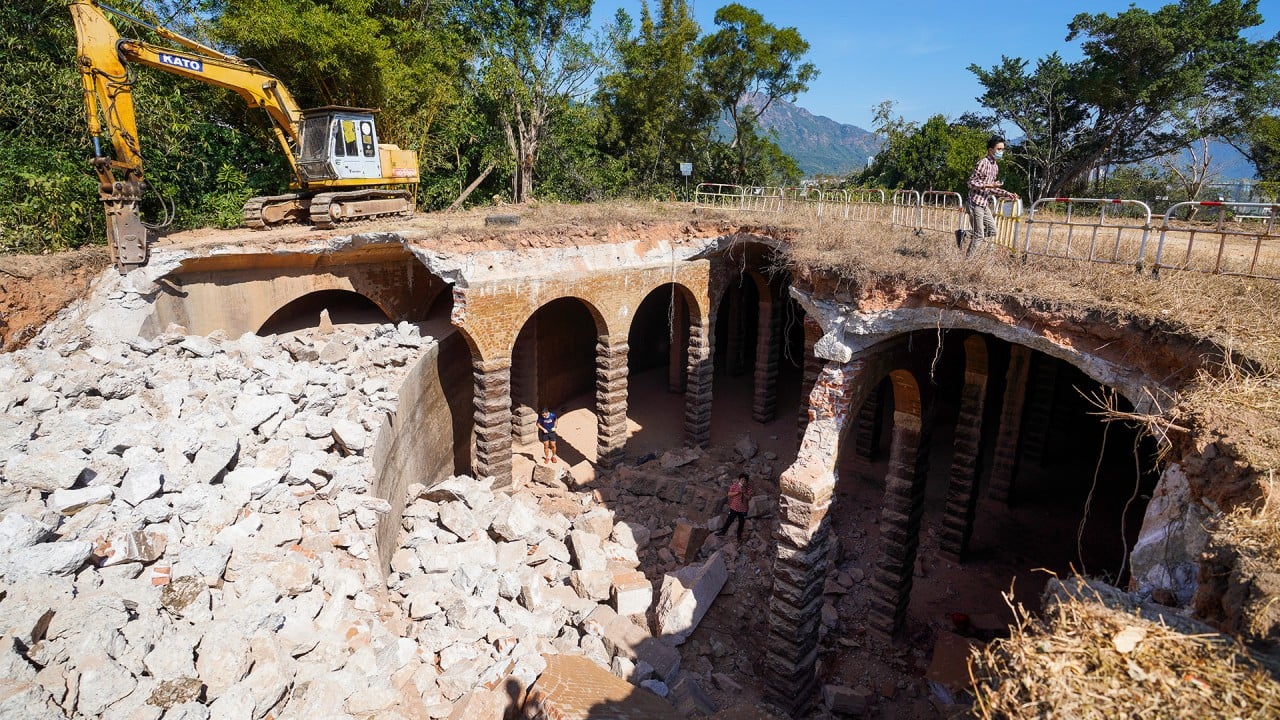
Letters | Sham Shui Po reservoir conversation: why has government failed to engage public again?
- Readers discuss the reopening of the underground reservoir in Sham Shui Po, the transition to electric vehicles, and the importance of positive thinking for cancer patients
It is a shame that district councillors were not told about the site changes, particularly the glass canopy. Following the weakening of district councils’ power, the inability of communities to engage in conservation planning becomes a concern. I was not aware of the interventions until they made the news. By then, the interventions were already nearly completed.
While the government understandably prioritised the protection of the structure, this should not deny the public the right to know. Officials should abandon the elitist mindset that public engagement, or even simply consultation, is a waste of time.
Australia’s Burra Charter, an internationally acclaimed doctrine of heritage conservation, states that heritage sites “should be safeguarded and not put at risk or left in a vulnerable state”. The government has done this, and it is appreciated.
But public participation in the conservation process is equally important, according to the charter. “Groups and individuals with associations with the place…should be provided with opportunities to contribute to and participate in…its conservation and management.”
Interest groups are most often represented by district councils in our institutional structure. Unfortunately, some district councillors have said they neither feel included nor respected by the authorities.
A conservation project of such public interest and which could have empowered citizens should not be tied up in red tape. Even if the government could not engage with or consult the public about the urgent work, it should at least have made public the proposed designs at an early stage, and told us that the interventions are temporary and reversible, and that long-term revitalisation options are open to engagement.
It is absurd to see the government passively providing limited information while members of the general public desperately fly drones to obtain photographs.
Tin Wai Elzaphan Liu, undergraduate in architectural conservation, University of Hong Kong
No reason not to switch to electric vehicles
Electric vehicles, however, are powered by battery or fuel cells that convert hydrogen into power, and produce no polluting fumes. To put it simply, by encouraging the use of electric vehicles, we can keep the ill effects of transport to a minimum, while improving our air quality and improving the image of our city.
More importantly, replacing traditional vehicles with cleaner-running electric vehicles will reduce air pollution and play a prime role in improving our health prospects. Apart from improving our physical health by reducing the chances of people suffering from asthma or bronchitis, our mental health can also improve when noise pollution from traffic is reduced – electric vehicles are whisper quiet compared to their traditional engine-revving counterparts.
This is especially important at night for those who live near roads, a common situation in a congested city. Electric cars just might offer many of us a better night’s rest.
Given that electric cars offer so many benefits, from environmental sustainability and cleaner air to reduced noise pollution and better health, why not encourage their prevalent use?
Why – when there are so many benefits from encouraging electric cars – don’t we simply revamp transport in Hong Kong? It is my earnest hope that our city can build a reputation as not just pre-eminent and hi-tech, but also environmentally friendly.
Helen Cheuk, Cheung Sha Wan
In cancer, positive thinking makes a difference
This echoes the advice that we give to all cancer patients at our cancer patient resource centres. Cancer touches everyone: the patient, their loved ones, family and friends.
The Hong Kong Cancer Fund believes that overcoming cancer takes more than just medicine. Our professional team of social workers, art therapists, dietitians and clinical psychologists help clients manage the physical, emotional, psychological and social challenges of a cancer diagnosis.
Our services span the hospital, community and home with a network of four cancer support centres, including our dedicated women’s support centre in Central. All of our services are free and we would encourage anyone affected by cancer to contact us. We are here to ensure that no one faces cancer alone.
Sally Lo, founder and chief executive, Hong Kong Cancer Fund


